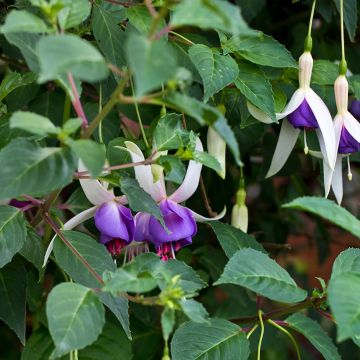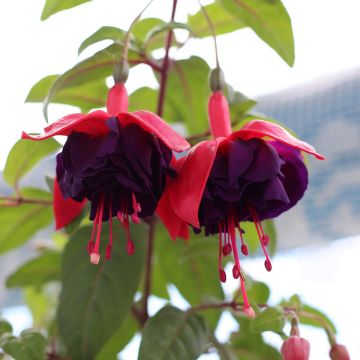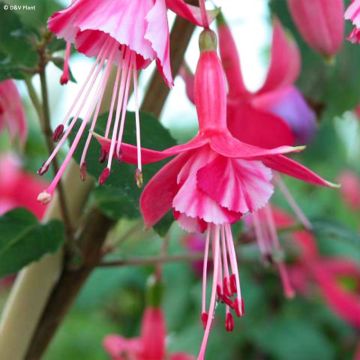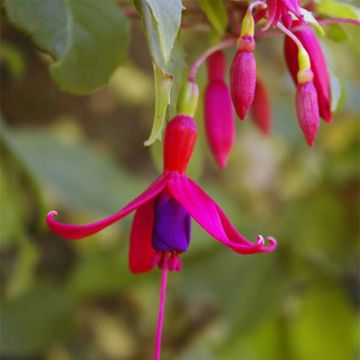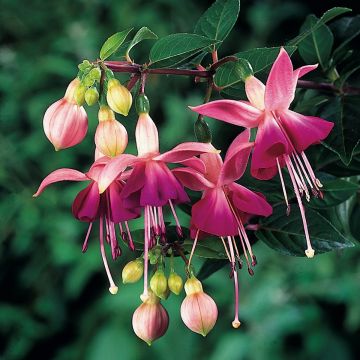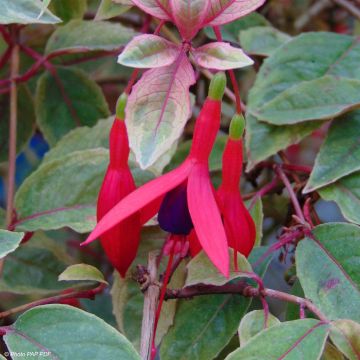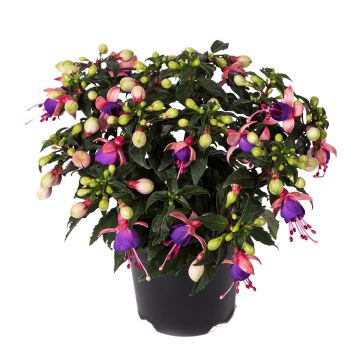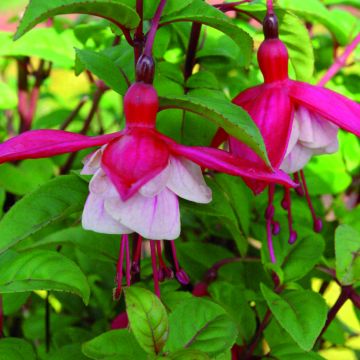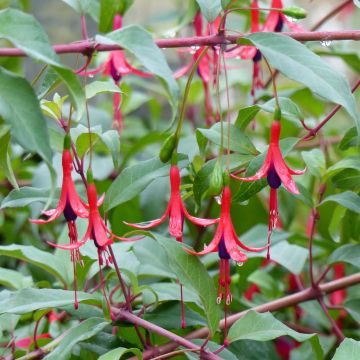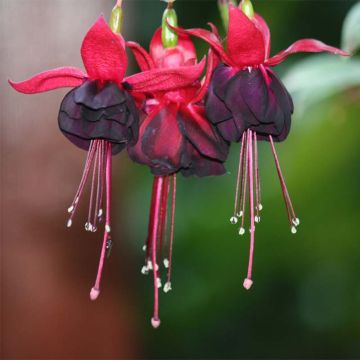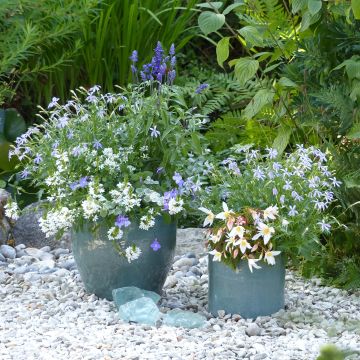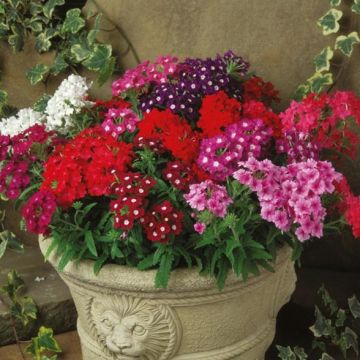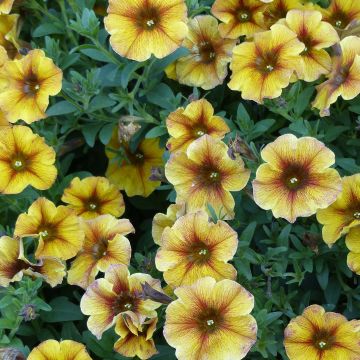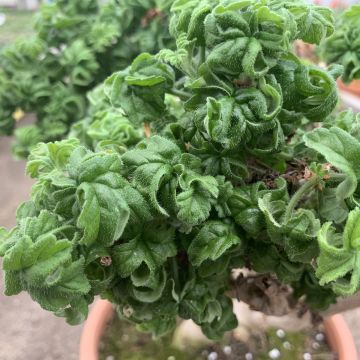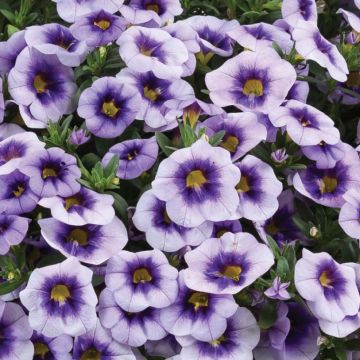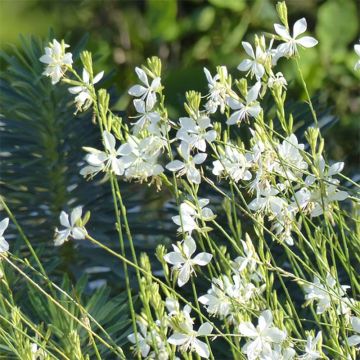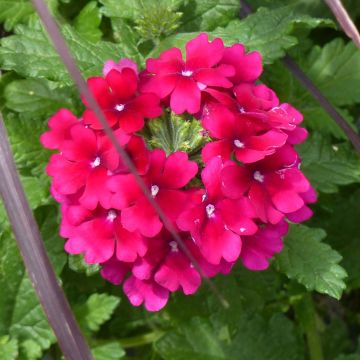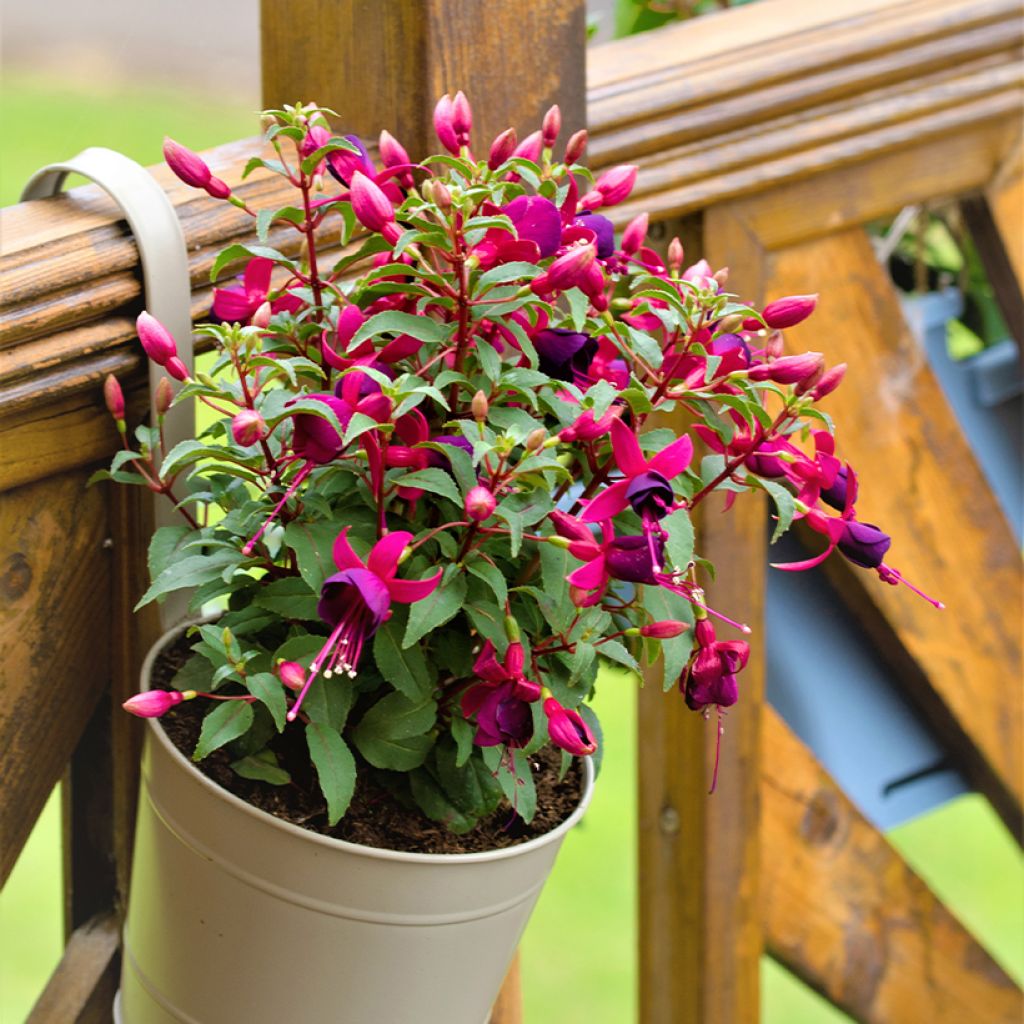

Fuchsia venusta Tom Thumb
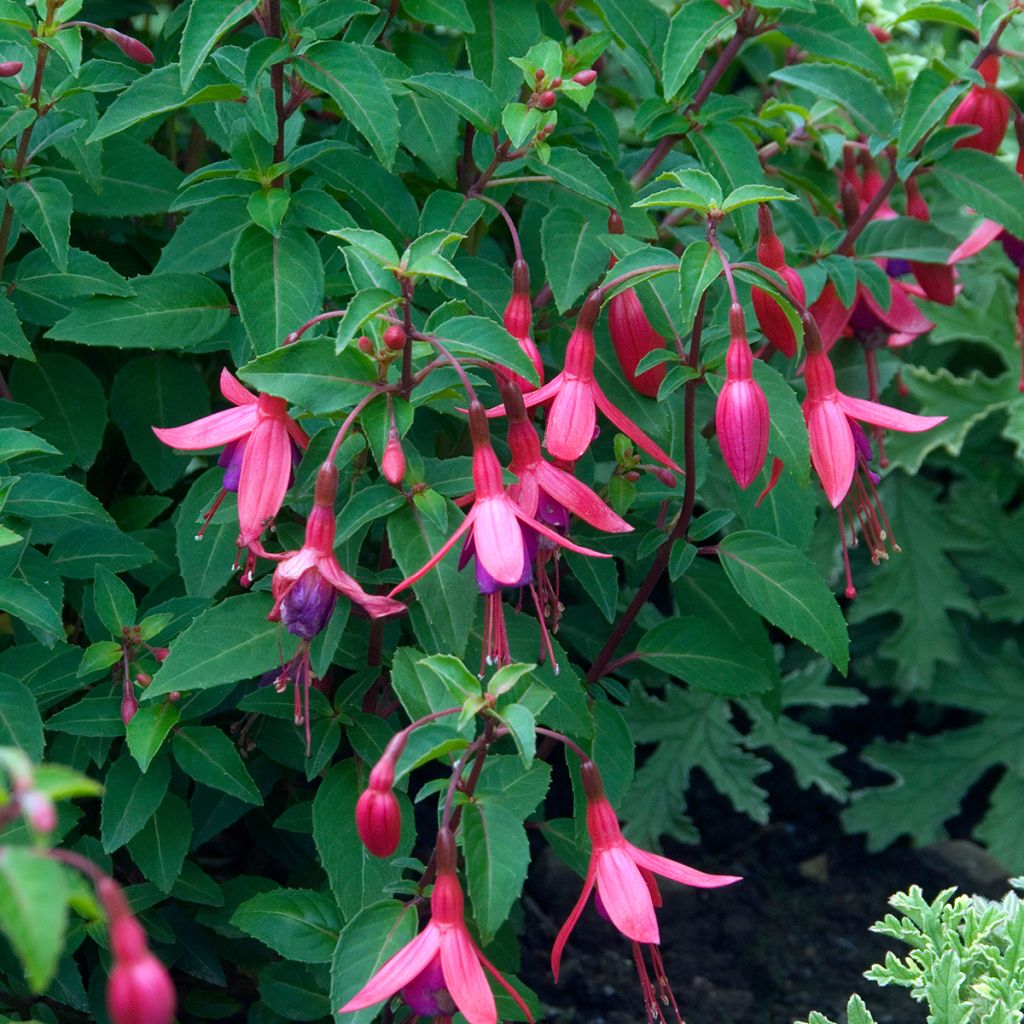

Fuchsia venusta Tom Thumb
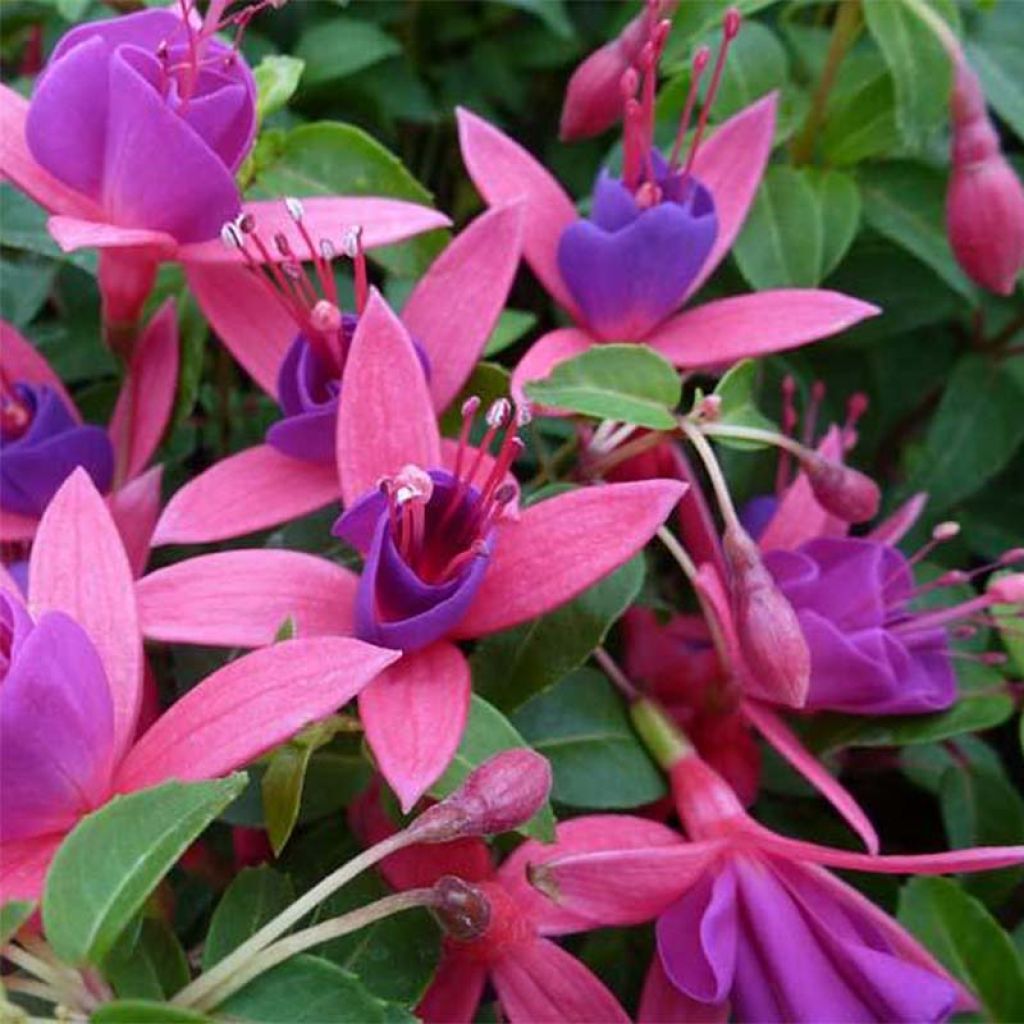

Fuchsia venusta Tom Thumb
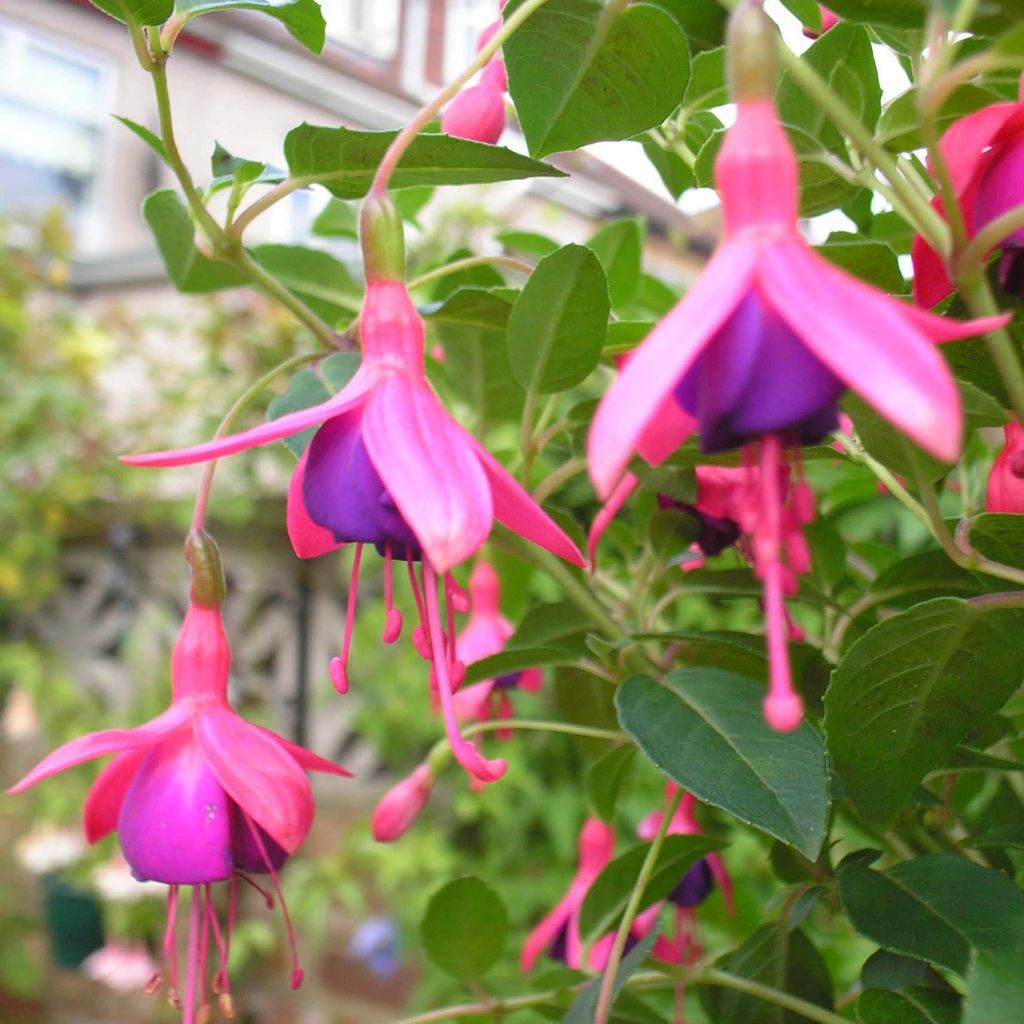

Fuchsia venusta Tom Thumb
Fuchsia venusta Tom Thumb
Fuchsia x venusta Tom Thumb
This item cannot be shipped to the selected country
Delivery charge from €5.90
Delivery charge from €5.90
More information
Schedule delivery date,
and select date in basket
This plant carries a 24 months recovery warranty
More information
We guarantee the quality of our plants for a full growing cycle, and will replace at our expense any plant that fails to recover under normal climatic and planting conditions.
From €5.90 for pickup delivery and €6.90 for home delivery
Express home delivery from €8.90.
From €5.90 for pickup delivery and €6.90 for home delivery
Express home delivery from €8.90.

Does this plant fit my garden?
Set up your Plantfit profile →
Description
The Fuchsia 'Tom Thumb' is an old variety of Fuchsia venusta with a very compact habit and exceptional floribundity. This undershrub forms a dense cushion, covered with small single flowers in carmine red with violet corollas, which continue to bloom for at least 6 months. It is also a relatively hardy variety, which can be grown directly in the ground in partial or even in full shade in coastal areas with mild winters. It can be used for edging, in rockeries, or in potted plants to be overwintered in colder regions.
Fuchsias are a type of flowering plant that belongs to the Onagraceae family. They are native to South America, the Caribbean, and Australia and come in many hybrid varieties. One of the most popular cultivars is the French hybrid 'Tom Thumb', which dates back to 1850. It is widely grown due to its beautiful flowers and ease of cultivation, making it a reliable choice for gardeners. 'Tom Thumb' is a small, dense, upright bush that grows to a height and width of 35-40cm (13.8 - 15.7 in). It blooms from May-June to September-October, producing medium-sized flowers with a long tube and four long, reflexed sepals. The flowers come in shades of red to carmine pink, with a corolla of broader, shorter petals in a slightly veined mauve-violet with hints of pink-red. Long pink stamens complete the harmonious look. As the season progresses, the 'Tom Thumb' stems become woody. They bear abundant foliage composed of narrow, deciduous, opposite, whorled leaves in groups of 3 or 5, which are entire and measure 5 to 8 cm (2 - 3.1 in) in length. The leaves have a glossy dark green colour.
Fuchsias are usually grown as an annual, but they can also be grown as a perennial indoors or directly in the ground where the frost is mild. It can withstand temperatures ranging from -5°C to -8°C when adequately protected from the cold. Fuchsias complement the foliage of ferns, rodgersias, orange heucheras, and light green hostas. They also go well with hydrangeas in cool and shaded areas. When grown in pots, these plants can be paired beautifully with ivy, 'Silver Falls' dichondra, lobelias, or bacopas. If planted in a border, the dwarf varieties can be highlighted by the foliage of hostas, the delicate flowers of Impatiens balfouri, tiarellas, or epimediums.
Fuchsia, a plant originally from South America, was discovered in Santo Domingo in the 17th century and later acclimatised in Europe. It was named after a German botanist named Fuchs. Over time, more and more botanical fuchsias have been developed, and tens of thousands of hybrids are now available.
Our plants are green and measure 4 to 8cm (1.6 - 3.1 in) and come in trays of 5 small plugs that measure 2.8cm (1.1 in) in diameter and 4cm (1.6 in) in height. They are at least eight weeks old and strong enough to be planted directly into the ground.
Report an error about the product description
Fuchsia venusta Tom Thumb in pictures
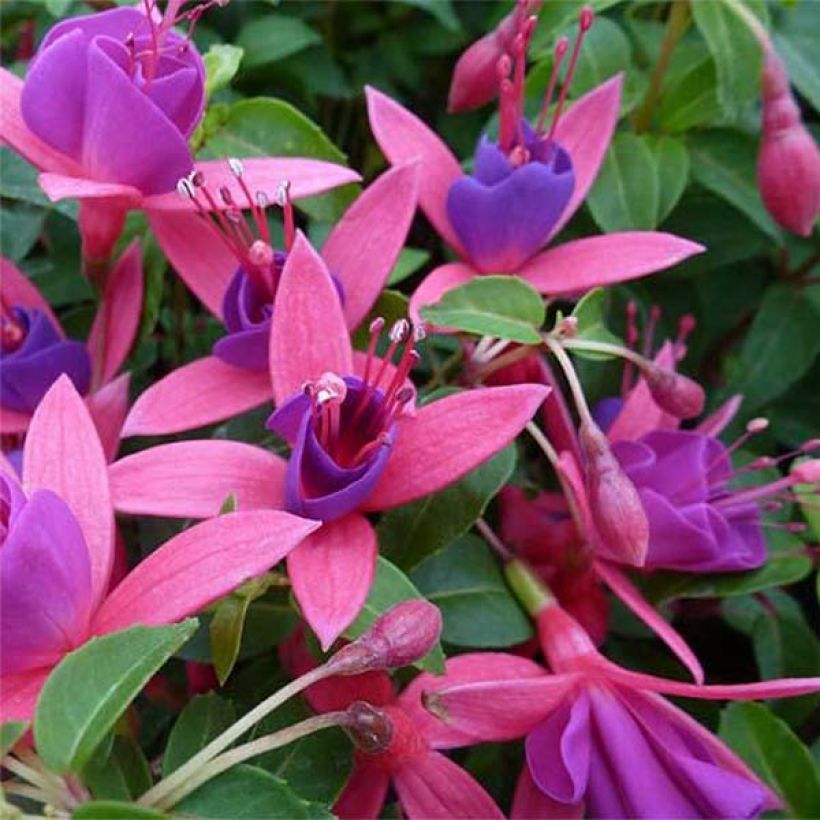

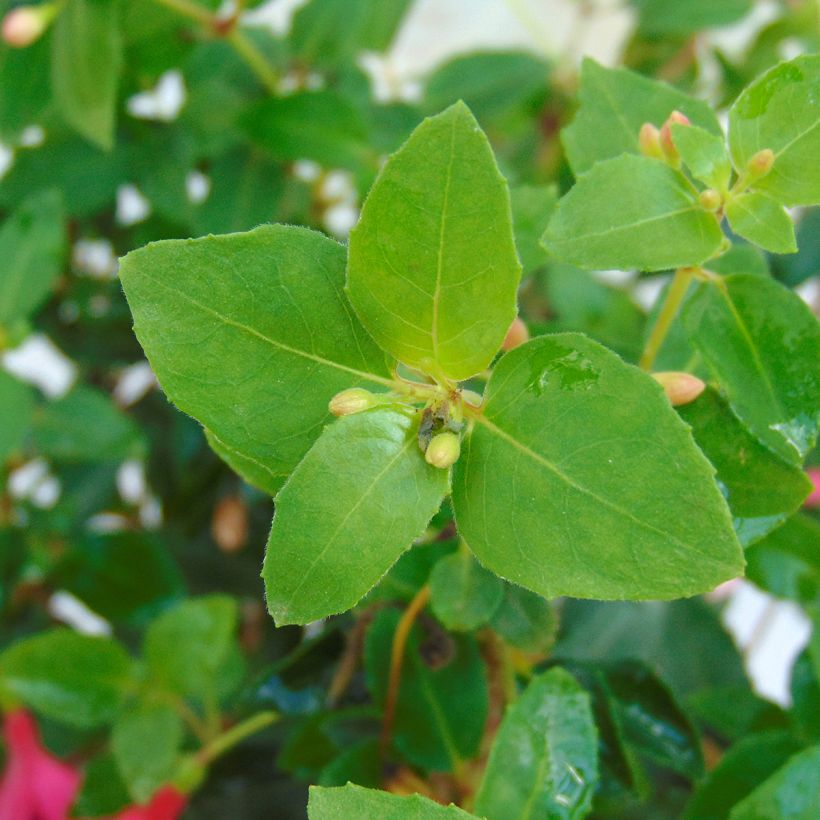

Plant habit
Flowering
Foliage
Botanical data
Fuchsia
x venusta
Tom Thumb
Onagraceae
Cultivar or hybrid
Other Fuchsia
Planting and care
To grow healthy hybrid fuchsias, it's essential to plant them in a soil that's rich, moist, and well-drained. They prefer being in the sun or partial shade but avoid direct sunlight during the summer. Water them regularly, but take care not to overdo it. When grown in pots, ensure that there's no water left in the saucer, as it can lead to root rot and leaf fall. Feed them with a liquid fertiliser for fuchsias every 15 days during the growth period. Regularly remove dry leaves and faded flowers. Prune them in autumn after flowering. If you want to grow fuchsias indoors, they can be perennials and evergreens.
To help your plants survive the winter, cutting them back to 15 cm (5.9 in) from the ground during autumn is essential. After cutting them back, cover them with a thick layer of mulch made of dead leaves or fern fronds. The mulch should be wrapped in horticultural fleece or placed under a waterproof cover to keep excess moisture away from the plants during winter.
Planting period
Intended location
Care
-
, onOrder confirmed
Reply from on Promesse de fleurs
Plug plants - Annuals
Haven't found what you were looking for?
Hardiness is the lowest winter temperature a plant can endure without suffering serious damage or even dying. However, hardiness is affected by location (a sheltered area, such as a patio), protection (winter cover) and soil type (hardiness is improved by well-drained soil).

Photo Sharing Terms & Conditions
In order to encourage gardeners to interact and share their experiences, Promesse de fleurs offers various media enabling content to be uploaded onto its Site - in particular via the ‘Photo sharing’ module.
The User agrees to refrain from:
- Posting any content that is illegal, prejudicial, insulting, racist, inciteful to hatred, revisionist, contrary to public decency, that infringes on privacy or on the privacy rights of third parties, in particular the publicity rights of persons and goods, intellectual property rights, or the right to privacy.
- Submitting content on behalf of a third party;
- Impersonate the identity of a third party and/or publish any personal information about a third party;
In general, the User undertakes to refrain from any unethical behaviour.
All Content (in particular text, comments, files, images, photos, videos, creative works, etc.), which may be subject to property or intellectual property rights, image or other private rights, shall remain the property of the User, subject to the limited rights granted by the terms of the licence granted by Promesse de fleurs as stated below. Users are at liberty to publish or not to publish such Content on the Site, notably via the ‘Photo Sharing’ facility, and accept that this Content shall be made public and freely accessible, notably on the Internet.
Users further acknowledge, undertake to have ,and guarantee that they hold all necessary rights and permissions to publish such material on the Site, in particular with regard to the legislation in force pertaining to any privacy, property, intellectual property, image, or contractual rights, or rights of any other nature. By publishing such Content on the Site, Users acknowledge accepting full liability as publishers of the Content within the meaning of the law, and grant Promesse de fleurs, free of charge, an inclusive, worldwide licence for the said Content for the entire duration of its publication, including all reproduction, representation, up/downloading, displaying, performing, transmission, and storage rights.
Users also grant permission for their name to be linked to the Content and accept that this link may not always be made available.
By engaging in posting material, Users consent to their Content becoming automatically accessible on the Internet, in particular on other sites and/or blogs and/or web pages of the Promesse de fleurs site, including in particular social pages and the Promesse de fleurs catalogue.
Users may secure the removal of entrusted content free of charge by issuing a simple request via our contact form.
The flowering period indicated on our website applies to countries and regions located in USDA zone 8 (France, the United Kingdom, Ireland, the Netherlands, etc.)
It will vary according to where you live:
- In zones 9 to 10 (Italy, Spain, Greece, etc.), flowering will occur about 2 to 4 weeks earlier.
- In zones 6 to 7 (Germany, Poland, Slovenia, and lower mountainous regions), flowering will be delayed by 2 to 3 weeks.
- In zone 5 (Central Europe, Scandinavia), blooming will be delayed by 3 to 5 weeks.
In temperate climates, pruning of spring-flowering shrubs (forsythia, spireas, etc.) should be done just after flowering.
Pruning of summer-flowering shrubs (Indian Lilac, Perovskia, etc.) can be done in winter or spring.
In cold regions as well as with frost-sensitive plants, avoid pruning too early when severe frosts may still occur.
The planting period indicated on our website applies to countries and regions located in USDA zone 8 (France, United Kingdom, Ireland, Netherlands).
It will vary according to where you live:
- In Mediterranean zones (Marseille, Madrid, Milan, etc.), autumn and winter are the best planting periods.
- In continental zones (Strasbourg, Munich, Vienna, etc.), delay planting by 2 to 3 weeks in spring and bring it forward by 2 to 4 weeks in autumn.
- In mountainous regions (the Alps, Pyrenees, Carpathians, etc.), it is best to plant in late spring (May-June) or late summer (August-September).
The harvesting period indicated on our website applies to countries and regions in USDA zone 8 (France, England, Ireland, the Netherlands).
In colder areas (Scandinavia, Poland, Austria...) fruit and vegetable harvests are likely to be delayed by 3-4 weeks.
In warmer areas (Italy, Spain, Greece, etc.), harvesting will probably take place earlier, depending on weather conditions.
The sowing periods indicated on our website apply to countries and regions within USDA Zone 8 (France, UK, Ireland, Netherlands).
In colder areas (Scandinavia, Poland, Austria...), delay any outdoor sowing by 3-4 weeks, or sow under glass.
In warmer climes (Italy, Spain, Greece, etc.), bring outdoor sowing forward by a few weeks.

































